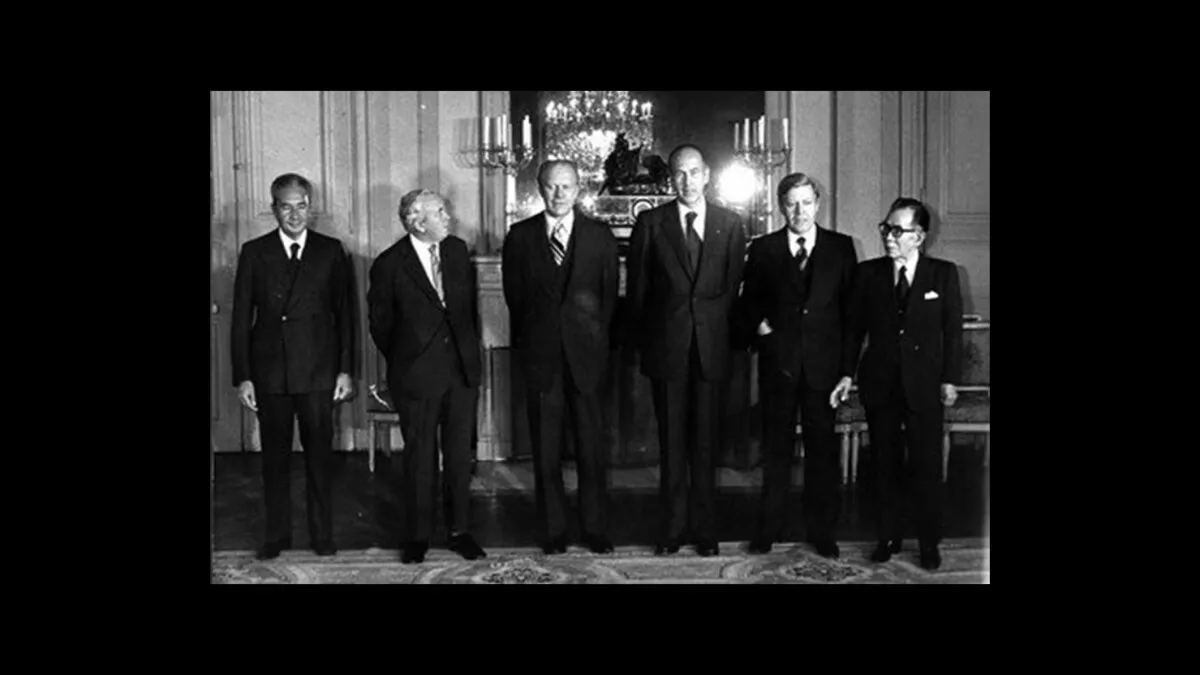Did Trump's Iran strikes effectively kill multilateral world order? Analysis by Project Syndicate
The month of June 2025 may go down as a turning point in world affairs—a moment when the old model of multilateralism effectively died. Institutions rooted in “the West,” especially NATO and the G7—both of which, perhaps not coincidentally, had summits scheduled for this month—now appear increasingly irrelevant. Most tellingly, when the United States signaled its intent to strike Iranian nuclear sites, it did so without consulting its NATO allies. Instead, President Donald Trump left the G7 summit in Kananaskis, Canada, early to launch the historic and high-risk mission.
The G7’s growing irrelevance mirrors the wider disarray in international governance, according to Harold James, a Princeton University Professor in International Affairs. In his article published by Project Syndicate, he draws parallels to the G7’s very first summit, nearly 50 years ago, which then was the G6 and did not include Canada. It also dealt with Middle Eastern instability in the wake of the 1973 Yom Kippur War, when leaders had gathered in Rambouillet, near Paris, in November 1975 to devise strategies for stabilizing the West’s economic and political systems without resorting to force.
Those early meetings reflected a desperate effort to shore up liberal democracy amid fears of internal decay. Though born from discussions among US, British, French, German, and Japanese finance ministers, the group also brought in Italy—not because it was powerful, but because its democracy seemed most at risk.
Former US Secretary of State Henry Kissinger proposed an alternative to armed intervention in 1974: major oil-producing nations like Saudi Arabia and Iran would be drawn into a shared financial system by holding their oil wealth in Western banks. These petrodollars could then be recycled as loans to emerging markets—linking them to the West through mutual financial dependence. This, Kissinger hoped, would avert future conflict. The author finds this to have been an inspired, if imperfect, model for peace.
Germany, too, pursued a post-WWII strategy based on the idea that trade could foster peace. Known as Wandel durch Handel ("Change through Trade"), it guided post-war Germany’s approach toward the Soviet Union and later, Russia. But that thinking was dealt a major blow after Russia’s military assault on Ukraine. German leaders have since apologized for their past dependence on Russian energy and their support for deeper EU-Russian energy ties. It pushed Chancellor Olaf Scholz to declare a Zeitenwende, or historic turning point in regards to the country's approach to Russia, defence and economic partnerships.
What had once been praised as globalization and multilateral cooperation is now condemned as runaway neoliberalism. Today’s political leaders—from Joe Biden to Vladimir Putin to Ursula von der Leyen—reject the notion that commerce alone can build peace. Yet, as the author believes, this broad repudiation has come without any serious replacement strategy.
As James puts it in his article, "the skeptics would have done well to consult ancient mythology, which presented the god of commerce, Mercury, as a rival to the god of war, Mars. Only Putin had the intellectual consistency to see that Mars was the outcome of rejecting Mercury. He wagered that the god of war could make a new Russia."
The G7’s structural weaknesses made it ill-suited to address this evolving world. By the 2000s, the group had lost traction, and the G20 emerged as a more inclusive alternative—especially after its rapid response to the 2008 financial crisis. But disputes over trade and currency soon paralyzed it as well.
Russia’s 2014 illegal annexation of Crimea led to its expulsion from the G8, as it was named then with Russia being a member. Trump decried this decision during his first term and returned to the theme in this month's NATO summit in Kananaskis, calling the move a “very big mistake” and suggesting Russia should be reinstated. Yet the author finds Trump’s argument implausible, given Russia’s central role in destabilizing global security—from Syria to Iran. If anything, the article suggests that the G7 should be expanded to include a rising power like China, while simplifying its structure—perhaps by limiting the EU to a single representative.

As the author points out, there was an eerie parallel between Kananaskis and Rambouillet in 1975. Back then, the inaugural G6 (Canada was not yet a member) met amid fears of global chaos. This time, French President Emmanuel Macron advocated for a ceasefire but Trump, as he departed the event, replied that he was thinking “much bigger than that. Whether purposely or not, Emmanuel always gets it wrong.” In this instance, Mars trumped Mercury, the article notes.
It further argues that leaving a multilateral summit to wage war was a strange move for someone who has long claimed to be making peace. Trump’s “America First” doctrine—marked by promises of disengagement and ending “forever wars”—still resonates with many voters. Yet his actions seem contradictory, especially after his recent Middle East tour, which skipped Israel and focused on Gulf state investments and financial deals.
"From the risk of an escalating military conflict to the deep dissatisfaction with democracy at home, the parallels to Rambouillet are striking. The question is whether there is anyone who can channel Kissingerian insights today. The script for such a leader is clear, and it involves channeling Mercury, not Mars. This is the moment when someone in Europe, China, or the Global South should stand up and say: 'Our problems are much bigger than that. Whether purposely or not, Donald always gets it wrong.'," the article's author concludes.
By Nazrin Sadigova








